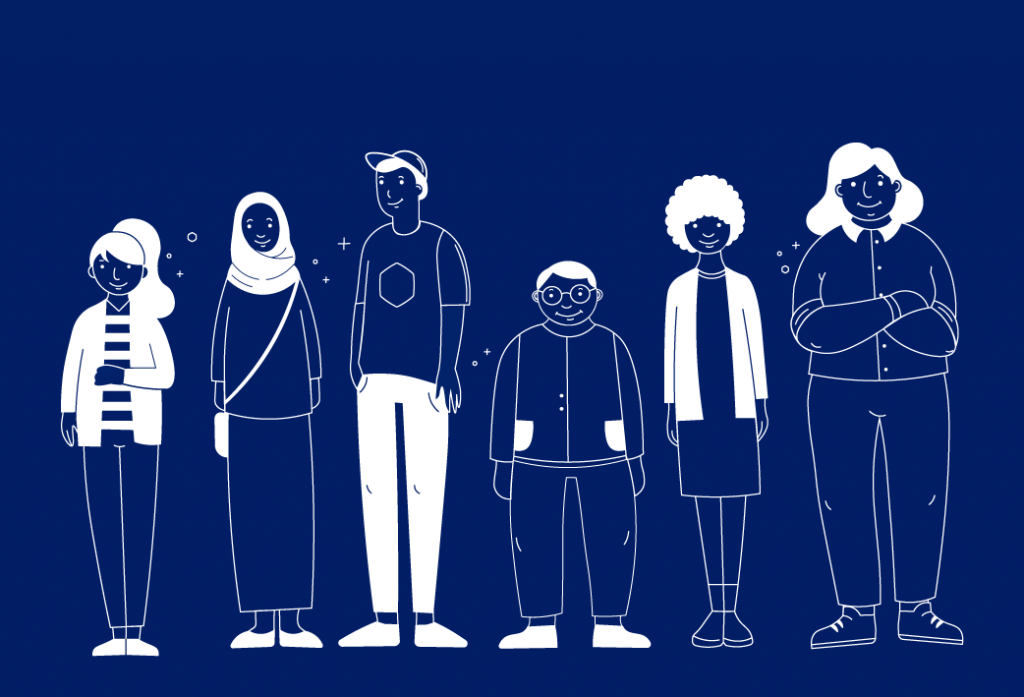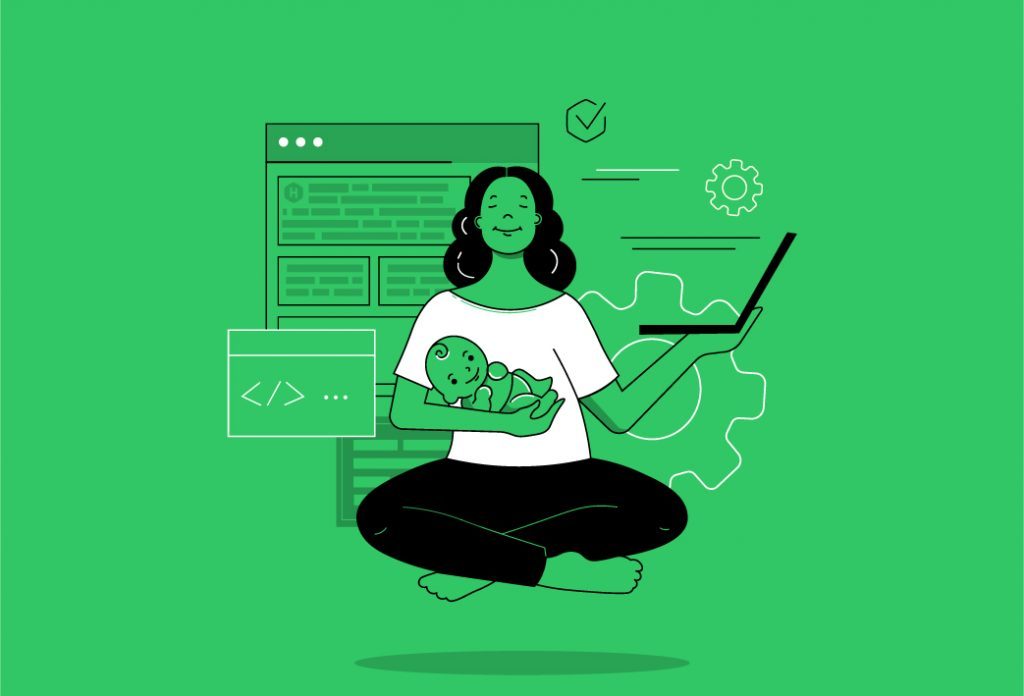Women Who Code
Celebrating women developers and the companies empowering them
Audible:
Ingraining Inclusion Through Mentorship and Allyship
Audible is changing the narrative on storytelling. As the leading producer and provider of premium digital audio storytelling and spoken-word entertainment, they’ve redefined the ways people access, discover, and share stories. With millions of subscribers, Audible reaches listeners around the world—something that Jenn Lee helps to make possible as a leader for the Audible on Alexa team. Jenn and her team are responsible for crafting Audible’s voice experience on Amazon Alexa devices: an experience they’ve rolled out to customers in five new countries since Jenn joined the company in 2017. Here’s her perspective on working at Audible:
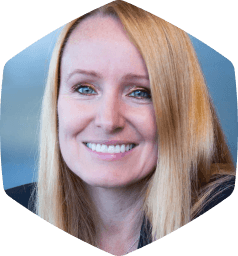
Q&A
Jenn Lee, Director of Software Development at Audible
-
Why did you choose to work at Audible?
After working in FinTech for 16 years, I realized that I wanted to work on a product that not only I used, but was used and loved by my friends and family as well. I wanted to build something that I could passionately talk about in casual conversation with just about anyone.
I love the challenges involved in voice first technology, and the community at Audible is amazing. They are my family away from home.
Since I am an avid reader and driven by cutting edge consumer technologies, when a college friend reached out and asked me if I was at all interested in the Audible on Alexa experience, I said “heck yeah!”. I love the challenges involved in voice first technology, and the community at Audible is amazing. They are my family away from home.
-
Why is belonging important to your engineering organization, and how has it affected your work?
When you love what you do, you spend a lot of your time and energy doing it. If you don’t feel like your opinions or work is valued, it can make work feel like, well frankly, work. We have technically strong and socially-bonded teams at Audible, which can be attributed to our creative monthly team outings and some healthy competition, such as game nights and our team happy hour planning rotation. Creatively themed happy hours that are inclusive to all are serious business here.
The tight-knit dev teams demonstrate amazing resilience. Whether we have exciting new features or less-exciting compliance work, the teams divide and conquer with an all-in mentality.
The tight-knit dev teams demonstrate amazing resilience. Whether we have exciting new features or less-exciting compliance work, the teams divide and conquer with an all-in mentality. Regularly, teammates offer to take each other’s on-call shift so that their teammates can have work-life balance. There is a strong mentorship ethic within teams, at all levels, from office-wide tech talks to afternoon-tea-and-learn sessions to pair programming.
-
One of Audible’s values is to respect and celebrate the glories of the human spectrum. What’s been the most impactful in making that a reality within your engineering organization?
I work in the Cambridge office and since we are a smaller office, we have the luxury of knowing everyone in the office. This allows us to really dig in to recognize each other for jobs well done. We have a number of mechanisms that we put into place to give ad-hoc thanks to each other such as the Audible ‘Orange Crush’ award, inspired by Disney’s cast member merit award, the Grape Soda (originally featured in the Disney Pixar movie, Up). We have a giant whiteboard where employees can write how someone earned an award, then they can grab a special Orange Crush pin and hand it to the person who deserved to be recognized.
I love working at a company where people like each other enough to spend time together outside of work.
We also have monthly peer awards during our All Hands, awarded for Unsung Hero, as well as five more based on our People Principles: Customer Hero, Activate Caring, Imagine & Invent, Articulate & Move Fast and Draw Inspiration. I love working at a company where people like each other enough to spend time together outside of work. My entire team even came to my house for a BBQ!
We are also missionary agents of change, and volunteer regularly to help our community in the way that we best know how, by mentoring. We volunteer in a STEM program at a Cambridge middle school via a program called NetPals, we mentor Cambridge High School students as interns and we TA at Resilient Coders, a non-profit bootcamp aimed at bringing tech skills to the underrepresented community in Boston.
-
As a woman in tech, what’s your favorite thing about working at Audible?
One of the things that stuck out the most to me when I first started at Audible was the impressive number of technical women in the office. I remember one spring day when about a dozen women in the office were wearing fun spring dresses. Dresses! In a tech company! I had honestly never seen this in my entire technical career. In a company where there are more women, you can see women feeling comfortable being women, rather than trying to fit in with men.
In a company where there are more women, you can see women feeling comfortable being women, rather than trying to fit in with men.
We also have an amazing group of women in leadership roles who run the Audible Women in Engineering (AWE) group, which is very active and hosts some really exciting events, such as a Confident Club, Mentoring Circles, Take Your Kids to Work Day, Hour of Code, and AWE Remix - a series of talks sharing learnings from conferences and events. We’re all really trying to make Audible one of the best places to work for women in tech.
-
HackerRank research shows that, while the gender gap is closing in fields like computer science, women are still less likely to be developers than men. Why do you think that is, and how do you think we can address it?
This is one of my favorite topics! I think there are a number of reasons, the first being the technical interview. In fact, I presented on ‘Surviving the Technical Interview’ at GHC in 2017. For some reason, either men are better prepared for the technical interview or technical interview formats are biased towards men.
At Audible, we are trying hard to make sure that every interview loop has a diverse team, to help combat any implicit bias and to make sure that women see that there are other women who work here. Knowing that someone like you works at a company goes a long way when considering accepting an offer.
There’s no question, a technical interview can be scary, especially if you are not prepared. There are a lot of women’s groups on Meetup that hold monthly white-boarding sessions to help get ready for your interview. At Audible, we are trying hard to make sure that every interview loop has a diverse team, to help combat any implicit bias and to make sure that women see that there are other women who work here. Knowing that someone like you works at a company goes a long way when considering accepting an offer. We are also hosting a number of interview prep talks and sessions for local underrepresented minority (URM) communities.
Additionally, women get stuck at the bottom of the ladder and give up when they see their male peers advancing and they are not. For some women this happens when they take time to start families. I’ve been seeing a lot more men take paternity leave, which is great for women! Not only does it help out the mom but it makes ‘parental leave’ something that both men AND women do. This has been great for leveling the playing field. Another reason is that often women are not getting the same level of mentoring, sponsoring and exposure to challenging, highly visible projects.
...in addition to individual development plans and career conversations, we have kicked off an official company-wide mentoring program and we have made significant traction with our male allies program in the management circles.
At Audible, in addition to individual development plans and career conversations, we have kicked off an official company-wide mentoring program and we have made significant traction with our male allies program in the management circles. We have a monthly managers cross-flow meeting and a permanent agenda items is allyship. I love hearing all of the actions that are being taken by my male manager peers! For example, one manager rescheduled a promotion review meeting so that the female managers could attend. Another manager tried an experiment of raising the temperature by 5 degrees in one area of the office because a study illustrated that the difference between men and women’s metabolic rates can result in performance issues. A 5 degree temperature raise can improve performance by 150%, and aren’t we all rated on performance?
I’ve got a lot of great stories, find me and ask me to share!
-
How does Audible work to empower women within engineering? What sorts of support can a potential hire expect once they join the team?
With our interns, we ensure that they are assigned an Audible Women in Engineering (AWE) mentor. Immediately upon joining, all women engineers are welcomed into our AWE chat room and added to our distribution list so they can get up-to-date information regarding our monthly events. All new hires get a ‘buddy’ to help them with on-boarding and to get acquainted with the office and their colleagues. You’ll never see a new hire sitting alone at lunch, especially on their first few days! Being new is hard, so we work hard to make sure that our new hires feel welcomed!
-
What’s the most exciting thing you’ve built in your time at Audible? Any projects you’re particularly proud of?
I’m going to have to say “my team”. Since I joined, my team has tripled in size, all while keeping the men:women ratio at about 50:50.
Since I joined, my team has tripled in size, all while keeping the men:women ratio at about 50:50.
I am also so proud of how all of my engineers have developed over the years and grown into bigger roles. One of my SDEs converted to an SDM to help me scale the team and she has been indispensable. The engineers never cease to amaze me with their level of engagement, their passion for the customers and their respect towards each other. I guess making Audible available to customers on Alexa in 5 new countries would be my next most proud achievement.
-
If you had once piece of advice for women developers looking for their first job, what would it be?
Make sure that your company is vested in your growth as a software engineer as well as being a place that has people with whom you would like to spend time. Ask about mentorship and career development. Ask what growth opportunities exist. If you can have lunch with your team, make sure that you feel comfortable with them and that you feel like they are interested in what you have to say.
-
Anything else you’d like to share with women developers considering a job at Audible?
When you decide to join Audible, look me up!
Current Openings
FactSet:
Elevating Diverse Voices Through Collaboration
FactSet leverages a unique blend of data and analytics to help the world’s leading financial services professionals make crucial investment decisions. With 24 offices on 6 continents, FactSet is a truly global company—and it’s something they embrace. At FactSet, “the best ideas can come from anyone, anywhere, at any time.” A back-end engineer for one of FactSet’s research applications, Jennifer Ma has worked at the company since 2013. As a technical leader within the engineering organization, Jennifer leads the company’s internal C++ Guidance Group, serves on an engineering interviewing committee, and more. Here’s what she said about her experience at FactSet:
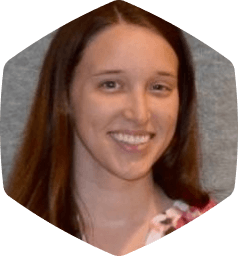
Q&A
Jennifer Ma, Senior Software Engineer at FactSet
-
Can you tell us about what you do at FactSet?
I’m a back-end engineer for one of our research applications. My team builds and maintains services that are consumed by our application front-end as well as other application teams at FactSet. Most of my coding work is in C++, but I also work on a NodeJS service and dabble in other technologies. Aside from my main role, I’m involved in a few groups. I lead our internal company C++ Guidance Group, I’m on an engineering interviewing committee, and I’ve helped out with new hire training in the past.
-
Why did you choose to work at FactSet? What drew you to the company?
When I was interviewing, I was impressed by FactSet’s culture. We work hard here, but it’s in a very collaborative way that’s not about high stress, pressure, or internal competition. We win as a team and take pride in our work-life balance.
-
What did the path to your current role look like? Any advice you’d give to those looking to pursue a role like yours?
This is my third role at FactSet. I started as an individual contributor on a team that worked entirely in C++, and then became a manager of another C++ team. After about two years of managing, I decided I wanted to grow more technically in a role that covered more of the stack and used more technologies than just C++. So now I’m an individual contributor again, but I’m still a leader in the ways I listed earlier.
Following through on solving problems is how you gain respect, build connections, and open opportunities for yourself. That’s how I’ve gotten to where I am.
Technical leadership is not the same as people management. I encourage people to be problem solvers. When you see something that you know you could help improve, follow through on it. It could be something in the code that can be refactored or re-architected, a development process, or something company-wide. Following through on solving problems is how you gain respect, build connections, and open opportunities for yourself. That’s how I’ve gotten to where I am.
-
What’s your favorite thing about working at FactSet?
Without a doubt, it’s the people. As I mentioned earlier, FactSet works collaboratively. This has allowed me to make so many great connections and build real friendships. I have a management chain that supports me and I have a great team that makes it easy to want to come to work every day.
-
FactSet prides itself on being an inclusive community—one where the best ideas come from anyone, anywhere, anytime. What does that mean to you? And how has that affected your work?
FactSet is a global company. That means we have to put in extra effort to make sure ideas and contributions from everybody are recognized, not just from people with connections or close to headquarters. Something we do that helps is having global events and contests that encourage FactSetters around the world to innovate. The biggest one is the annual hackathon. I love watching the demo videos that each hackathon team puts together, because there are so many great ideas from such a diverse range of employees.
-
HackerRank research shows that, by and large, women developers are far more likely to be in junior roles than men. Why do you think that is? Any advice you’d share with women developers aspiring to a leadership role like yours?
This is such an important question because research also shows that it’s not because women are doing anything wrong. Women are getting computer science degrees, they’re showing up and working hard, they’re seeking out mentors, and they’re asking for raises and promotions.
Instead of giving advice to women on what they might do differently, I’d rather give advice to companies to not undervalue half of the population!
Instead of giving advice to women on what they might do differently, I’d rather give advice to companies to not undervalue half of the population! There are so many factors that go into this -- from unconscious bias surrounding women’s technical abilities to the societal expectations on women to bear the brunt of domestic labor. So, the one piece of advice I’d give women is to really take a look at a company’s culture when you apply. Do they have programs to support women? How many women are there in leadership positions? Do they have flexible work hours or work from home policies?
-
FactSet aims to be a career destination for the best and brightest talent that mirrors its diverse communities and client markets. What’s been the most impactful in making that a reality within your engineering organization?
The most important actions are what we've been doing to recruit and interview a more diverse pool of applicants. For example, all hiring managers have participated in required unconscious bias training. This training covers how to mitigate bias in the interview process, as well as how bias can affect retention, career growth, and more.
...we're really excited about how our partnership with HackerRank is making our engineering interviews more equitable.
Additionally, we've been intentional about engaging with historically black colleges, womens’ groups, and other minority groups on campus. We've already seen the difference this makes in the diverse makeup of new hires coming in. The last thing I want to mention is that we're really excited about how our partnership with HackerRank is making our engineering interviews more equitable.
-
What’s the most exciting thing you’ve worked on in your time at FactSet? Any projects or initiatives you’re particularly proud of?
FactSet is driving toward a digital transformation in the FinTech industry. We’re redefining how clients interact with our services and putting out entirely new types of products. I can’t say too much about our forward-looking strategy, but I’m really excited to be a part of this revolution.
-
If you had one piece of advice for developers looking for their first job, what would it be?
Your career path will evolve over time, so be willing to try out different things and add as many skills to your skillset as you can. As you try out front-end, back-end, different programming languages, frameworks, working methodologies, people management, etc, you’ll figure out what you like best. Never be afraid to take on a role that stretches you outside of your comfort zone.
-
Anything else you’d like to share with developers considering a job at FactSet?
FactSet is a really great place to grow a career. As you can tell from my story, there are opportunities to try new things, learn new technologies, and switch roles. People are always happy to share knowledge and help each other out. We also have learning and development courses to support you throughout your career, and mentorship programs to build your network.
Current Openings
IBM:
Empowering Employees to Bring Their Full Self to Work
A longstanding leader in tech, IBM hired its first woman employees 20 years before women were granted the right to vote in the United States. At IBM, inclusion is more than a commitment to its employees: it’s a core priority of the business. Ann Graham has been a part of IBM for nearly 18 years, 15 of which she spent as a Verification Lead for IBM’s security development team. Here’s how her career has evolved over her time at IBM:
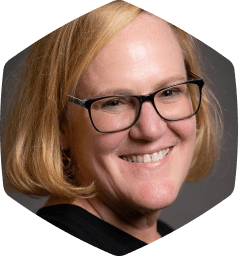
Q&A
Ann Graham, Program Manager & Former Engineering Lead at IBM
-
Can you tell us about what you do at IBM?
I have the best job at IBM, and before I started this role, I held several others! I’m currently the Program Manager for Developer Jumpstart. Developer JumpStart is an engagement program for Early Professional Developers. It provides professional development, networking best practices, and skills enhancement opportunities for our entry-level software and hardware developers. Essentially, I get to work with Early Professionals every day and help them jumpstart their careers here IBM.
-
Why did you choose to work at IBM? What drew you to the company?
I love working at IBM. I have worked at IBM since I graduated from college. I am so proud to work for a company that helps “run the world” and define the standards for Technology past, present, and future. I love that we constantly reinvent ourselves as a company and as employees. IBM also encourages volunteering and supports its employees in their volunteer efforts. In short, IBM makes a real difference in this world.
-
What did the path to your current role look like? Any advice you’d give to those looking to pursue a role like yours?
I took on my Developer Jumpstart role two years ago. Before that, I was a product developer for IBM Security. In that role, I helped bring over 12 different IBM Security products to the marketplace.
During my time as a software developer in IBM Security, I worked with early professionals and interns coming into our division, and I loved it. My passion for this work helped me find my current role.
You need to own the decisions you make along your career journey, the good ones and the bad ones.
Some of the most useful advice I can provide after my years at IBM is to say that YOU are the owner and driver of your own career. You need to own the decisions you make along your career journey, the good ones and the bad ones. If you are not happy where you are, DO something about it: educate yourself, volunteer, join a club, mentor a fellow IBMer, innovate, shadow, invite someone to lunch, go to a meetup, look at other roles within IBM, etc. Find ways to pursue your passions.
-
What’s your favorite thing about working at IBM
I tell everyone this: I still work at IBM because my IBM colleagues are truly like family. I have my own family, and I also have my IBM family. The work we do is hard. Thus, we cling to each other along the journey. We collaborate with each other to accomplish our goals. Both of my families celebrate good times and life milestones, and we rally around each other in the hard times inside and outside of work. Every time I meet a new IBMer, we have a connection, no matter how different we may seem: IBM draws us together.
-
IBM believes that diversity and inclusion are essential to the success of its business. What does inclusion mean to you? And how has that affected your work?
To me, inclusion means that I am able to be myself in the workplace; I do not have to change who I am to be successful at IBM.
IBM expects excellence and cultivates an environment of inclusion. The diverse teams I have worked with at IBM have expanded my horizons, allowed me to discover various ways to solve problems, and helped increase my innate creativity.
To me, inclusion means that I am able to be myself in the workplace; I do not have to change who I am to be successful at IBM.
A side note: potluck lunches are the best. We have delicious cuisines spanning every continent!
Inclusion and diversity are a way of life at IBM. It’s baked into how we live and work alongside one another. I do not know another way to approach the workplace.
-
HackerRank research shows that, while the gender gap is closing in fields like computer science, women are still less likely to be developers than men. Why do you think that is, and how are you addressing it at IBM?
I was asked this question by a bunch of high school girls at a volunteer event recently. They asked what I was doing about the gender gap. I told them that I have been doing my part by working in the STEM field for the entirety of my career. I also encouraged my daughter to pursue her dreams, and she is now in a STEM career. After I answered their question, I told them that it is up to them to stay dedicated to their math and science classes so that they, too, can become doctors, scientists, engineers, researchers, computer programmers, and more.
I truly believe that “if girls can see It, they can be it.” I hope to be an example for the girls that attend CyberDay4Girls: I want them to believe that they can pursue careers in STEM and thrive in them for a long time.
IBM also supports many outreach efforts: P-Tech, Tech Re-Entry, and finally, Veterans and Apprenticeships programs and volunteer opportunities. I am personally involved with #IBMCyberDay4Girls. #IBMCyberDay4Girls seeks to inspire middle-school girls to pursue careers in cybersecurity. Along with leading several #IBMCyberDay4Girls events, I have enabled others to implement their own CyberDay4Girls programs by using my team’s resources posted on ibm.org.
I truly believe that “if girls can see It, they can be it.” I hope to be an example for the girls that attend CyberDay4Girls: I want them to believe that they can pursue careers in STEM and thrive in them for a long time.
-
IBM has a longstanding history of promoting diversity and inclusion in the workplace. What’s been most impactful in promoting that vision within your engineering organization?
I have never known another way of working. I have never been the only woman working on a team.
On another note, I have never felt overlooked because I am a woman. I will say that I have been overlooked when I could not convince my manager that I had the skills necessary for the desired project. However, I feel strongly that it was not because I am a woman.
At IBM, diversity and inclusion are part of our collective DNA: it’s in our culture and within our offerings. All team members are welcome to provide feedback on a project. Our General Manager for Design challenges us to, “Let everyone’s contribution be heard.”
-
What’s the most exciting thing you’ve built in your time at IBM? Any projects you’re particularly proud of?
During my time on the Security development team, after the Security business unit was officially created, I told my manager that I thought I was not the “right fit” for the Security team. Our focal area at the time was Authentication and Authorization. It’s amazing because now, every time I perform two-factor authentication, I smile. I was part of the team that developed two-factor authentication for several of IBM’s security products and solutions. So, I guess I was the “right fit” after all.
However, the most exciting thing I have built at IBM are my relationships with my fellow IBMers—we are a family—we are IBMers.
-
If you had one piece of advice for developers looking for their first job, what would it be?
Be opened minded! Your first role will not be the only role you will ever have, so be OPEN to learning and taking advice from others. Learning and growth take time. Think of your career as a jungle-gym. You become more skilled and develop relationships at every rung. Each rung is foundational to the next.
-
Anything else you’d like to share with developers considering a job at IBM?
Come join us at IBM! Our work makes a difference to our world.
Current Openings
iHeartMedia:
Empowering Diverse Thought Through Diverse Talent
As the #1 audio company in the United States, employees at iHeartMedia reach the ears of millions of Americans every month. Kristina Shaik is a Director of Test Engineering team at iHeartMedia, where she drives innovation across the engineering org by ensuring the platform meets world-class quality standards. First working as a Test Engineer at iHeartMedia, now, as a Director, she works to create a place where all voices are heard—and she believes her team is stronger for it. Here’s what she had to say about working at iHeartMedia:
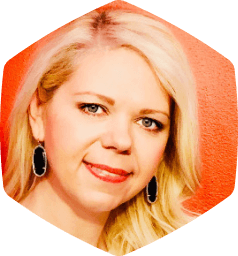
Q&A
Kristina Shaik, Director of Test Engineering at iHeartMedia
-
Why did you choose to work iHeartMedia? What drew you to the company?
The values of our team and organization are what brought me to iHeartMedia and they are what keep me here. Our values include promoting a diverse culture, working with cutting edge technology and impacting the world. The people who work here are also very welcoming, positive, kind, collaborative and excited about what we are creating.
-
Why is inclusion important to iHeartMedia’s engineering organization, and how has that affected your work?
At iHeartMedia we believe a diverse organization is a better organization. We want a team that includes different perspectives, experiences, and points of view. This encourages myself and my team to feel comfortable bringing our different backgrounds and ideas to the table.
We believe our teams should reflect the consumers we connect with.
Diverse teams help foster better debates, better decision making for our business, and a more forward thinking and engaged employee culture. We believe our teams should reflect the consumers we connect with.
-
As a woman in tech, what’s your favorite thing about working at iHeartMedia? What did your career path to your current role look like?
The opportunity to learn from and collaborate with our diverse group of employees, as well as collaborate with teams across the organization is my favorite thing about working at iHeart. For example, we host a Test Engineering Summit for Test Engineering Leads across all departments which I am responsible for.
I can always rely on [my] mentors and sponsors to advance my career.
I started at iHeartMedia as a mid-level Test Engineer and within six months I was promoted to Manager. From there I was promoted to a Senior Manager, and now I am a Director. This shows how strong the mentorship is at iHeartMedia, and how I can always rely on these mentors and sponsors to advance my career.
-
HackerRank research shows that, by and large, women developers are far more likely to be in junior roles than men. Why do you think that is? Any advice you’d share with women developers aspiring to a leadership role like yours?
At iHeartMedia, we do have female engineering managers, and this speaks to how important it is to work at a company which promotes growing their talent internally.
My advice is to identify a mentor and a sponsor who believes in you, who you can go to for help in career advancement and technical guidance. Do not be intimidated to be vocal.
My advice is to identify a mentor and a sponsor who believes in you, who you can go to for help in career advancement and technical guidance. Do not be intimidated to be vocal. Put your ideas out there. Work hard and get noticed.
-
One of iHeartMedia’s values is to welcome each individual’s entrepreneurial spirit, and to embrace diversity. What’s been the most impactful in making that a reality within your engineering organization?
We have Hackathons and Hack Weeks. This is when you have an opportunity to show what you are capable of. Employees are encouraged to create their own unique team and to run with their own project. The winning team (or teams) get recognized and win some awesome prizes.
-
What’s the most exciting thing you’ve worked on in your time at iHeartMedia? Any projects you’re particularly proud of?
Adding subscription tiers for all access use of iHeartRadio was super cool to work on. Also, when we launched internationally that was very exciting. We realized we were not only responsible for ensuring quality for US based customers, but also international users in New Zealand, Australia, Canada and Mexico.
-
If you had one piece of advice for women developers looking for their first job, what would it be?
Do not get intimidated by working with predominantly male coworkers. As long as you know what you are capable of, and put your best foot forward, you will always be successful. Try to learn as much as you can from those around you and network with everyone you meet. You never know what job leads they may have!
-
Anything else you’d like to share with those considering a job at iHeartMedia?
The culture at iHeartMedia is very special. We have an environment where women are very supported, respected and feel comfortable to grow in their roles and advance their careers. When you join the iHeartMedia family, not only do you get the opportunity to work with smart people on impactful projects, you also gain a group of colleagues and friends who will likely remain in your life well past your days working at iHeart.
Current Openings
Airbnb:
Creating a Workplace of Belonging
At its core, the goal of Airbnb is to create a world where anyone can belong anywhere. But that doesn’t just apply to their customers—it applies to their employees, too. As a Front-End Engineer, Diane Ko leads Airbnb’s digital accessibility initiative, ensuring that people with disabilities are able to use the Airbnb website and app. She’s also a part of the Nerdettes at Airbnb: a group dedicated to bringing together women in technical roles to share their experiences, remove obstacles in the workplace, and create a place where everyone can thrive. Here’s her take on working at Airbnb:
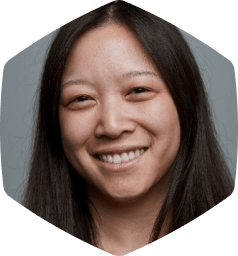
Q&A
Diane Ko, Front-End Engineer at Airbnb
-
Can you tell us about what you do at Airbnb?
I lead the digital accessibility effort for all engineering across Airbnb. This includes created strategies around different processes, building out tooling, creating documentation, and holding training.
-
Why did you choose to work Airbnb? What drew you to the company?
Airbnb has a strong reputation in the frontend community, and it looked like a place where I could really grow my skills working with really talented people.
-
What did the path to your current role look like? Any advice you’d give to those looking to pursue a role like yours?
When I joined, my role and my team didn’t exist. I saw a huge opportunity to use my experience from previous companies to help drive a major initiative at the company. I devised a plan around what I thought we needed to do in order to be successful, and worked with leadership and other teams to make that a reality.
Sometimes, the roles and projects related to those opportunities don’t yet exist. If you’re waiting for the perfect opportunity to be given to you, you might be waiting a long time.
For those who are looking to do something similar, I highly recommend following your passion around where you see opportunity. Sometimes, roles like these and projects like these don’t exist to be given out. If you’re waiting for the perfect opportunity to grow to be given to you, you might be waiting a really long time.
-
What’s your favorite thing about working at Airbnb?
The people I work with are amazing. There are so many incredibly talented and caring people here, and it’s been such a great experience working with them.
-
Airbnb aims to create a workplace that fosters belonging: one that’s not only diverse and inclusive, but a place where people feel they can belong. What does belonging mean to you? And how has that affected your work?
The best way I can think of belonging is that if I were to go somewhere where I feel like I belonged, people are happy to see me, and genuinely care that I’m there and doing well, and I’m happy to see them and want them to be doing well. A lot of the work I do with Nerdettes (our women in tech ERG), is to help foster a sense of community and understanding within the company to help women in tech thrive in their roles.
-
HackerRank research shows that, while the gender gap is closing in fields like computer science, women are still less likely to be developers than men. Why do you think that is, and how do you think can we address it?
I think a good portion of this is related to how computer science is marketed. It still feels like a “boy’s club”. This starts as early as grade school and continues into the industry. It’s in how the company/industry recruits, how they operate, what behaviors they tolerate, etc.
One way we can address this is by being more intentionally inclusive. This can include setting explicit codes of conduct, making sure that women are part of decisions that involve them, and being open to reevaluating the way that we’ve been doing things.
-
We recalled earlier that Airbnb aims to create a world where people can Belong Anywhere—and in the workplace, that means creating a workplace where all feel welcome, and all voices are heard. What’s been the most impactful in making that a reality within your engineering organization?
Airbnb has been spending time hosting listening sessions to understand the pain points of underrepresented groups within the company. I’ve seen different leaders open themselves up to change, and recognizing where we have room to improve.
-
What’s the most exciting thing you’ve worked on in your time at Airbnb? Any projects or initiatives you’re particularly proud of?
In my time here, I’ve been driving digital accessibility across the company. A big portion of that includes training other engineers on what accessibility is and how to address it in their work. The proudest moments for me are when people I’ve taught go on to teach other people.
-
If you had one piece of advice for developers looking for their first job, what would it be?
Not getting your dream job is not the end of the world - it may even be the biggest opportunity for you to learn and grow.
-
Anything else you’d like to share with developers considering a job at Airbnb?
I’ve never been at a company before that so deeply cared about its mission: to create a world where anyone can belong anywhere. If you believe in the goal of that mission, you belong at Airbnb.
Current Openings
Drive inclusion at your org with HackerRank
